Common Mistakes Exes Make When Co-Parenting
After two kids and 10 years, I’m navigating a new and challenging stage of life. My husband and I are recently separated and while our own individual feelings about our family changing shape are complex, there’s one thing we know for sure: that we have to maintain stability for our kids.
It can be immensely difficult to figure out how to adjust to a new normal, though. And even though we are on the same page about how to keep caring for our children, we’ve had a few missteps, as most newly separated couples do.
We’ve stumbled a few times, had miscommunications, and hurt feelings. But we’ve come to accept that co-parenting isn’t cut and dry. It takes time, patience, and a bit of trial and error. The most important thing we can do is to keep practicing and putting our best foot forward. We’ve learned a lot about what works for our new family dynamic, and we’ve also learned what definitely doesn’t.
Here are some important things not to do when navigating your co-parenting journey:
Don’t Expect Your Ex to Parent Like You Do
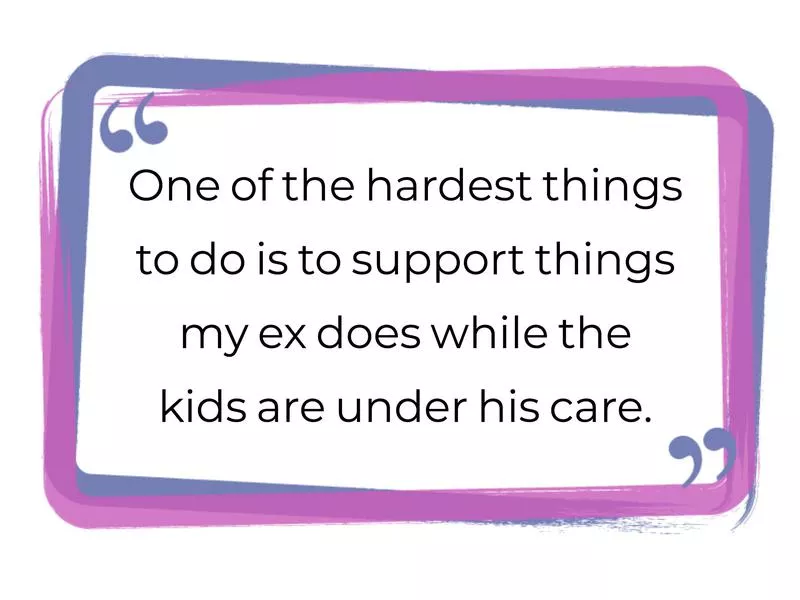
A common trap co-parents often fall into is expecting their ex to parent by the same guidelines they use. But what works for one parent simply might not work for the other. Chances are, differences in parenting had something to do with why you split in the first place.
Katie Alburn from Philadelphia is the mother of two sons and has been divorced for five years, and says letting go of those expectations has been a challenge.
“One of the hardest things to do is to support things my ex does while the kids are under his care,” she admits, “the kinds of things with which I do not necessarily agree, but that ultimately boil down to differences of opinion.”
She says that learning to let go of some of those differences in opinion, as long as she knows the kids are safe, has helped her boys see that both parents care for them and support each others choices.
Don’t Forget to Keep Adult Conversations Private
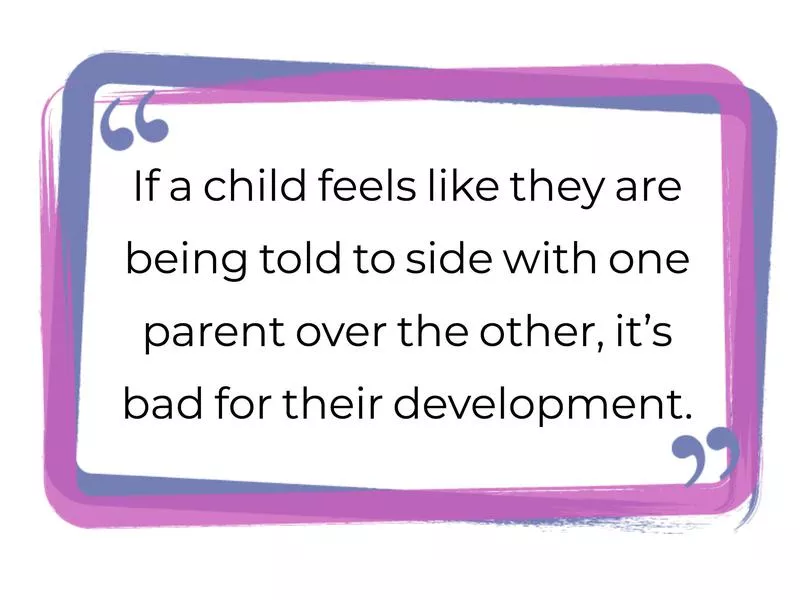
As parents who no longer live in the same space, there is a lot to discuss in order to keep things running smoothly. But it’s important to keep adult conversations between adults.
Find a private time to discuss matters that the children likely shouldn’t overhear, especially if emotions are running high.
Samantha Rodman, a clinical psychologist practicing in North Bethesda, Md., (better known as Dr. Psych Mom) told FamilyMinded that anything that can make kids feel they need to choose sides is an absolute no-no: “If a child feels like they are being told to side with one parent over the other, it’s bad for their development and self-esteem.”
Don’t Make Everything About You
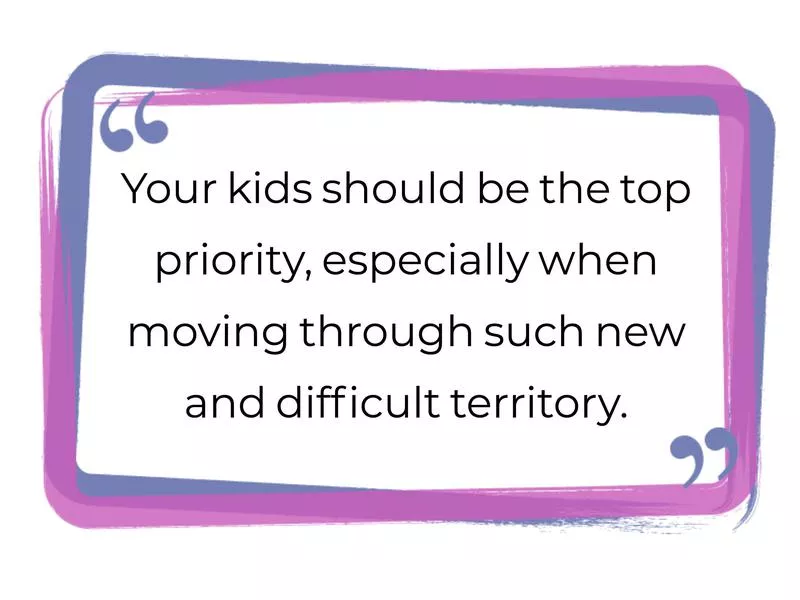
The truth is that even when things get tricky, remember, it’s not all about you. Your kids should be the top priority, especially when moving through such new and difficult territory.
You might have to navigate through some unpleasant emotions. You might even have to bite your tongue once in a while. Feeling the need to express every single feeling you have (and you’ll have a lot of them) won’t fix anything, and it won’t help your kids adjust either.
Sometimes, you have to keep the peace. It’s not easy, but it’s worth it to keep your kids feeling safe, loved and supported.
Don’t Stop Being the Parent You’ve Always Been
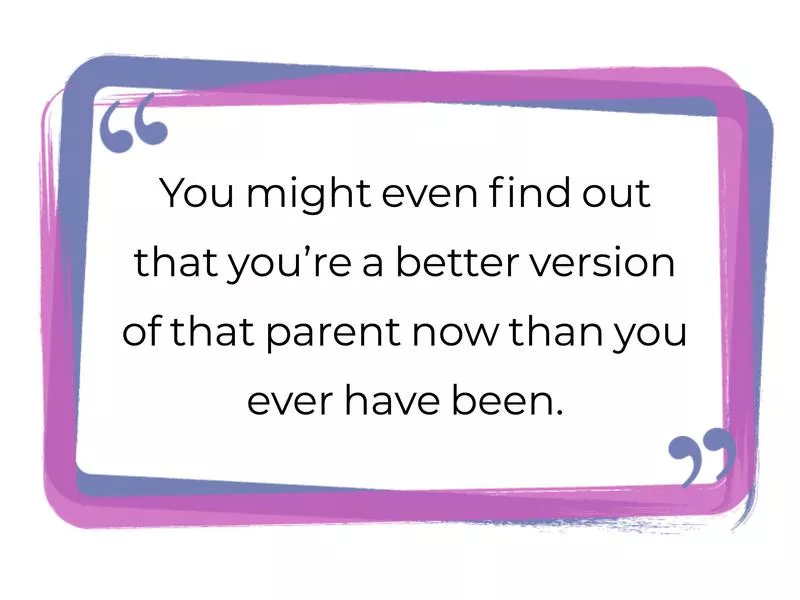
In times of change, you might find that you’re changing, too. Hopefully, once you’re through the most difficult times of transition, those changes are for the better.
But your kids are relying on you for a sense of normalcy. It’s not uncommon to find new things that make you happy post-separation or divorce. That’s important and maybe even exciting.
You’re still a parent, first and foremost. Luckily, you might even find out that you’re a better version of that parent now than you ever have been.
Don’t Talk Badly About the Other Parent
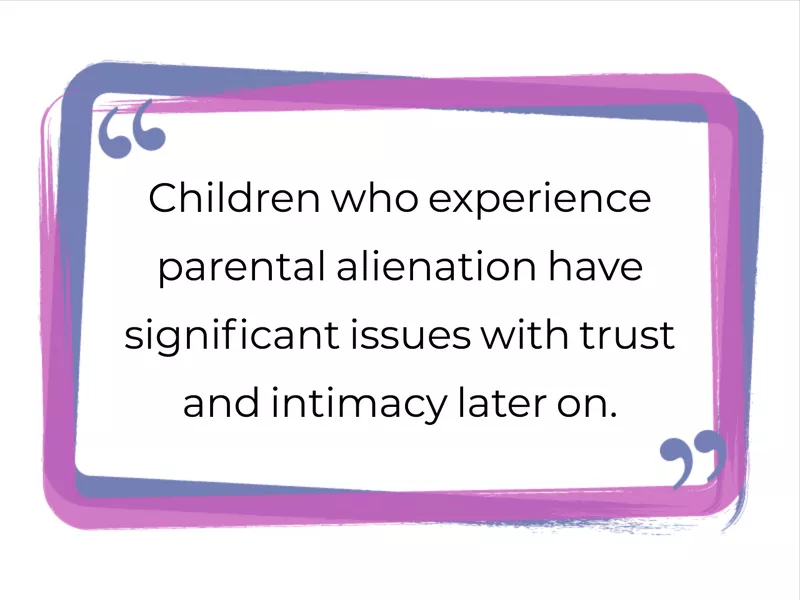
When you’re angry or frustrated, it can be tempting to let it out. But that’s what friends and therapists are for. Don’t talk badly about your ex to your children, no matter how upset you are. It will create a confusing dynamic where the child doesn’t know who to believe and will likely feel put in the middle or forced to choose who is right and who is wrong.
Rodman says, it can be “highly toxic and abusive” and is usually an effort to win a child over. Likewise, she says that given the kids are “50 percent of each parent” it can feel like they are being told that half of themselves is bad.
“This can lead to tremendous anxiety and self-esteem issues later in life,” she continues. Children “who experience parental alienation have significant issues with trust and intimacy later on.”
Don’t Give Up on Family Time
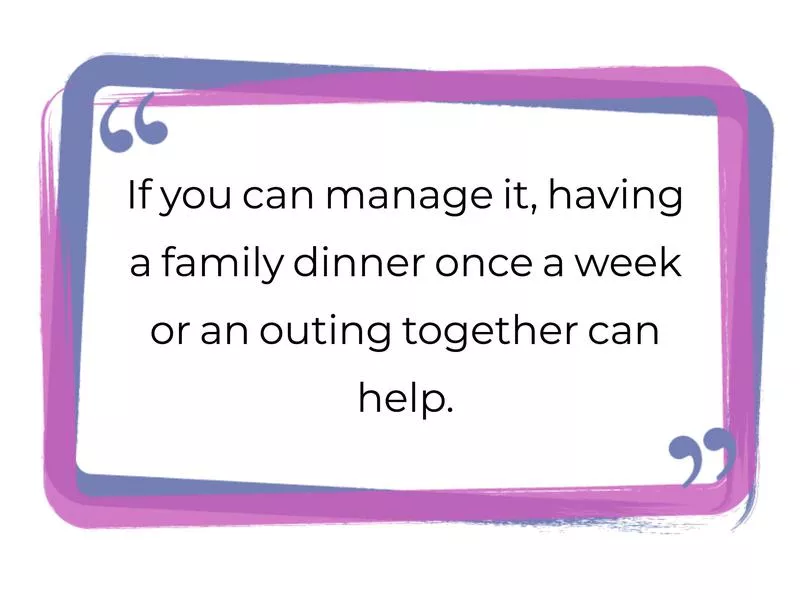
There are tons of different dynamics that can occur when moving through a separation. But if you have the ability to share some family time, go for it.
Sometimes, you might need to avoid getting together as a group when times are tough. But if you can manage it, having a family dinner once a week or an outing together can help the kids see that, even though your family has undoubtedly changed, you can also still get along, do things together, and enjoy one another’s company.
It may take some time to master it, and it won’t work for everyone. But having family time can be valuable and help your kids trust that everyone is OK.
Don’t Forget to Give Each Other Space
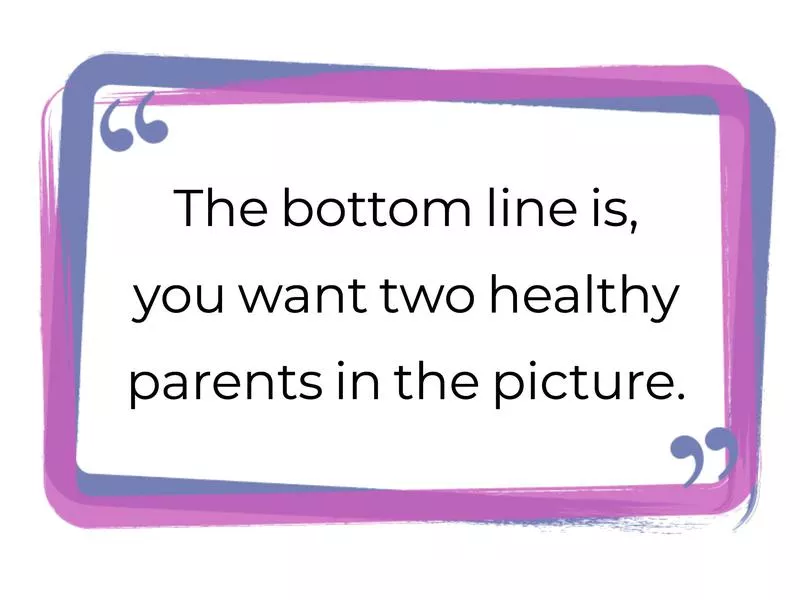
On the other end of the spectrum, sometimes space is a good thing. If family time is too difficult, don’t force it. Know when to step back, take your space, or likewise, give it to your ex.
Allow each other to take their space in whatever way they need to, as well.
The bottom line is, you want two healthy parents in the picture. Sometimes, that means staying away from one another, keeping conversations brief to avoid drama or arguments, until a time when it feels more comfortable for everyone.
Don’t Revisit the Past
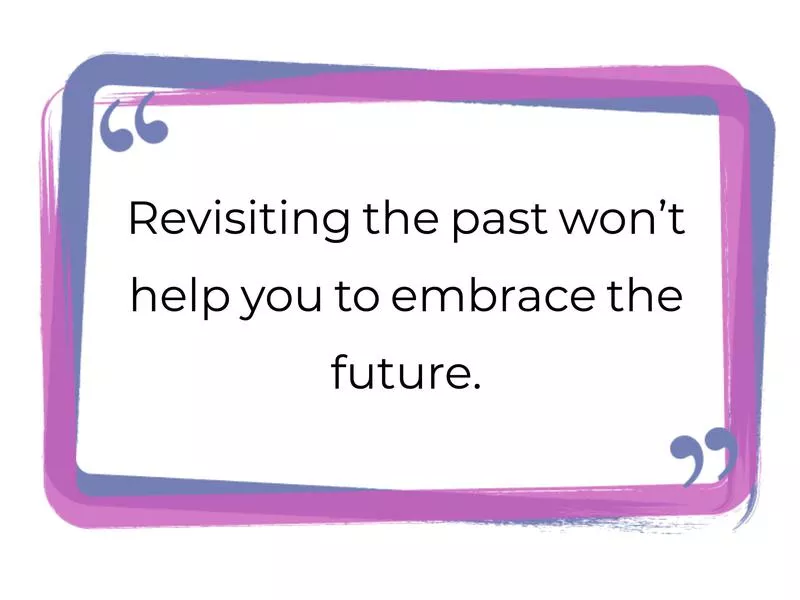
Now that you’ve decided to move on with your lives separately, looking to the past isn’t a good idea.
You could likely write a novel about the challenges you each went through as a couple. You could argue about what each person did or didn’t do, or what was so unfair. But the truth is, revisiting the past won’t help you to embrace the future.
Let go of what is done because the sooner you can put the past behind you, the sooner you’ll start enjoying your life. And your kids will undoubtedly feel that from you, too.
Don’t Neglect the Schedule
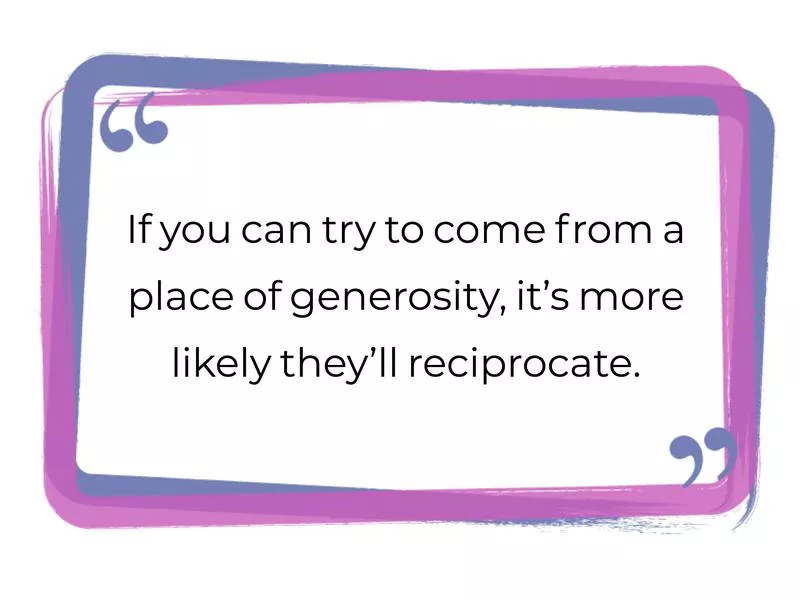
Especially in the beginning, it can be tough to figure out a schedule that works for everyone. Who gets the kids when? Who takes them to school? Who picks them up? Once you have your schedule in place, make sure you stick to it.
Mom of two, Amanda Lee of Toronto says having a schedule laid out in her and her ex’s separation agreement was important for their entire family. “Not only does it give your kids stability,” she said, “but it means you can organize your own life.”
Still, she says, it’s important to be flexible if there’s an absolute need to make a change. “If you can try to come from a place of generosity, it’s more likely they’ll reciprocate.”
Don’t Forget to Take Care of Yourself
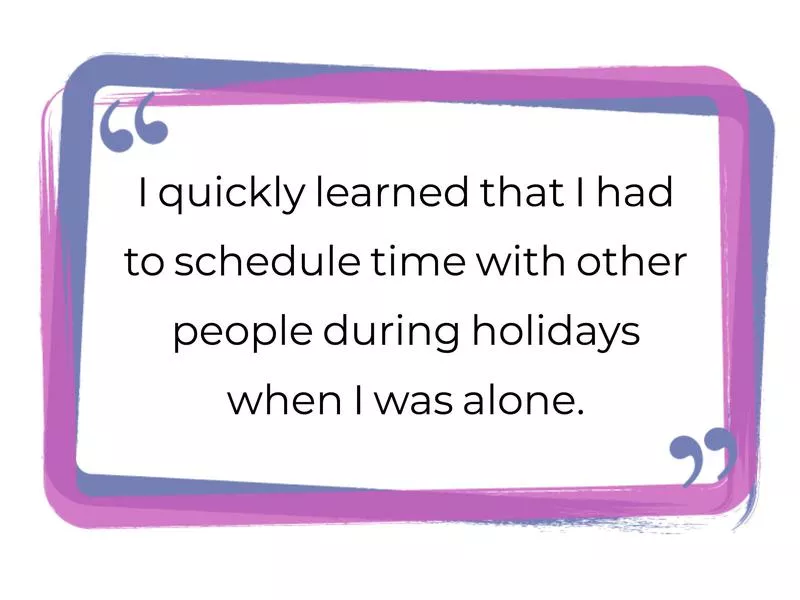
Moving through a separation is an immensely stressful time. You’re finding a new way of life, grieving the loss of your family as you know it, and trying to be present for your kids all at the same time. It’s enough pressure to make anyone lose their cool.
But allowing your stress to bubble over, so much that the kids can feel it from you, can be problematic. Practice taking care of yourself, whether it’s through exercise, eating well, talk therapy, or making time with friends.
Lee says that kind of self-care was crucial in the early days of separation.
“My family lives a world away and I quickly learned that I had to schedule time with other people during holidays when I was alone,” she said. “Being proactive about arranging lunch with a friend on Easter Sunday might sound like you’re a bit of a loser but it beats spending the day crying on the couch.”
If you forget to care for yourself, your children are going to feel your angst, so even when it feels like there is never enough time in the day, remember to make yourself a priority. Because when you you take care of yourself, everyone benefits.
Be Gentle With Your Ex, Too
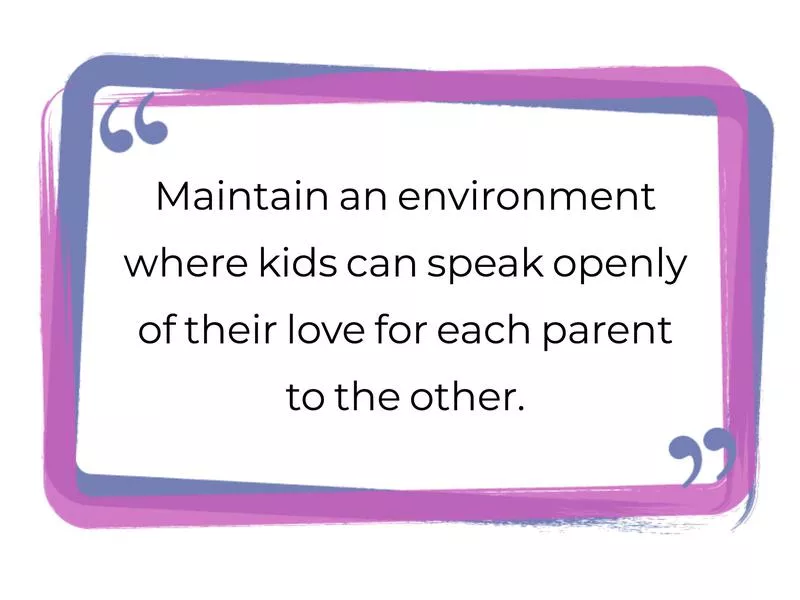
We all cope with separation differently and while it’s not your job to manage your ex’s emotional state, it is your job to be sensitive and gentle with them. Know that they are likely grieving the loss of your relationships, too, even if they show it differently than you do.
Being as kind as possible is not really for the sake of your ex, though of course it’s nice if you still care about them and want them to be happy. But showing compassion to the parent of your children serves your children, too.
Make efforts to be kind, civil, and understanding because your children will undoubtedly take notice.
“The best thing parents can do is maintain an environment where kids can speak openly of their love for each parent to the other,” Rodman says. By showing your own caring, it will be easier for kids to feel comfortable navigating their own emotions.
Don’t Give Up Hope
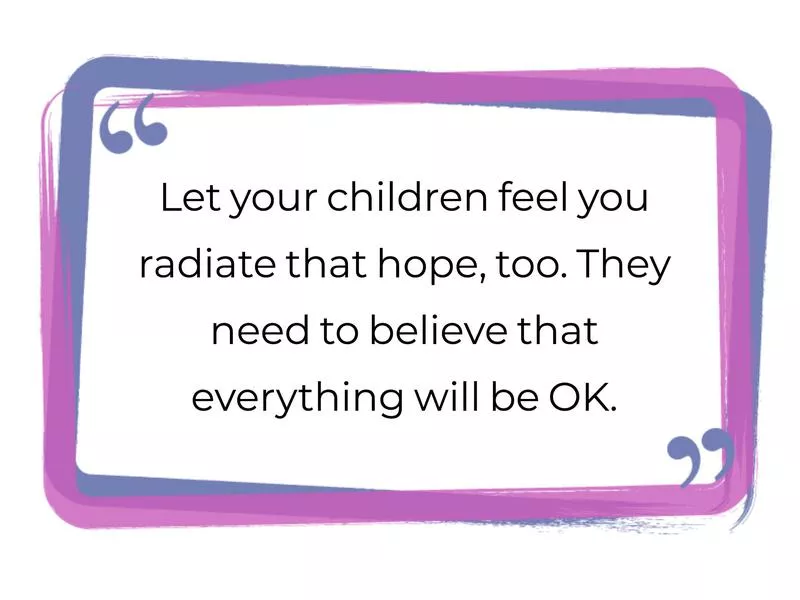
At times, going through a separation or divorce can feel utterly hopeless. Remember, nothing in life is permanent. Breaking your lives apart and moving in different directions, especially when there are kids involved, is rarely easy.
But underneath the pain and the sadness, remember that with change comes hope for the future.
Most importantly, let your children feel you radiate that hope, too. They need to believe that everything will be OK, the same as you need to believe it for yourself.
So keep the faith, hold your head high, and move forward with intention.